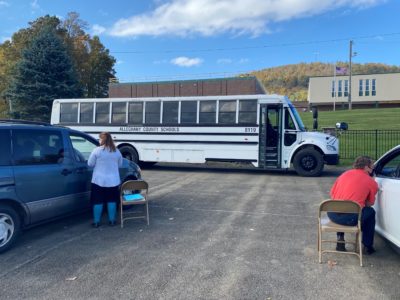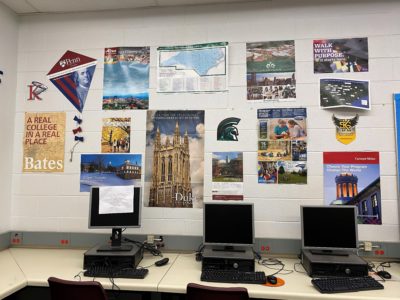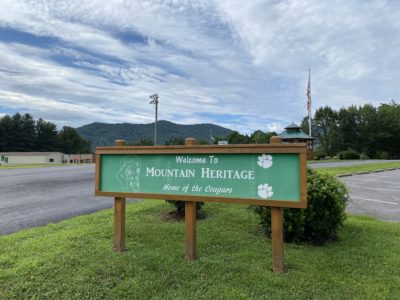Matt Bristow-Smith has long known the importance of the FAFSA. Like many principals across our state, Bristow-Smith understands that this application is the ticket to higher education for many students. Last year, Bristow-Smith learned about Finish the FAFSA, a tool that has enabled his school, Edgecombe Early College High School, to reach a 97% FAFSA completion rate this year.
Finish the FAFSA is a data sharing agreement between school districts and the North Carolina State Education Assistance Authority (NCSEAA). The agreement makes it possible for basic high school enrollment data from the Department of Public Instruction (DPI) to be matched with FAFSA completion data. This matching allows high schools to see where seniors are in their FAFSA process and whether they have completed the application or not.
“By making it something that at a school level a designated user is able to track, then you’re able to create school goals,” Bristow-Smith said. “Our school goal was 95% or higher FAFSA completion.”
Driving questions
Why was Bristow-Smith enthused about Finish the FAFSA? He said that he has two driving questions that this tool is helping answer.
- How do we make sure that every student in North Carolina who wants to attend postsecondary education has financial aid to do that?
- How do we make sure that every student in North Carolina who needs a school advocate to get there has that school advocate?
Bristow-Smith is convinced that if we answer the second question, the first will take care of itself. That is why in addition to encouraging districts to sign the agreement, he is also pushing schools to make sure they have a school advocate for students.
“To me this is really an equity issue,” Bristow-Smith said. “The myFutureNC attainment goal is 2 million highly credentialed workers by 2030. We have a 600,000 gap between that. Part of getting those higher credentials, those credentials of value, is being able to afford going to college.”
A collective effort
By December 2020, all but one district in the state (Haywood County Schools) had signed the agreement. What made this growth happen? Bristow-Smith says it was a collective effort between myFutureNC, NCSEAA, and some passionate school advocates, himself included.
Last year, Bristow-Smith reached out to every superintendent and high school principal in the state. He recruited Doug Price to help him with the charter schools. Price, the 2019 North Carolina Burroughs Wellcome Fund Charter School Teacher of the Year, has been an educator for over a decade. One of the unique challenges facing charters is that not every charter school is a high school. In addition, newer charter schools may not have a senior or graduating class yet. Price’s knowledge of and experience in charter schools helped get more schools to sign on to the agreement in 2020.
Kathryn Marker of NCSEAA said that while signing the Finish the FAFSA is a significant step, there is still more work to be done.
“We’ve been busy working with all these new districts in the last 10 months, because you know, the superintendent signing on is step number one, but then it has to trickle down to the counselors through the people actually using the tool and helping the students,” Marker said.
Just the beginning
If signing the agreement is the first step, then what comes next? Bristow-Smith says the development of a school advocate.
“It’s simply a matter of how we use our human capital,” he said.
At Bristow-Smith’s school, his school counselor is a designated user. She’s able to use the data to help students cross the FAFSA finish line. The information enables her to be a school advocate for students and is how her school was able to reach 97% FAFSA completion this year.
Bristow-Smith’s vision is that every school that has access to Finish the FAFSA can also find a school advocate to walk students through the application process.
“We don’t want kids to have fewer opportunities post-high school because we didn’t have systems in place to open those doors for them.”
Matt Bristow-Smith




